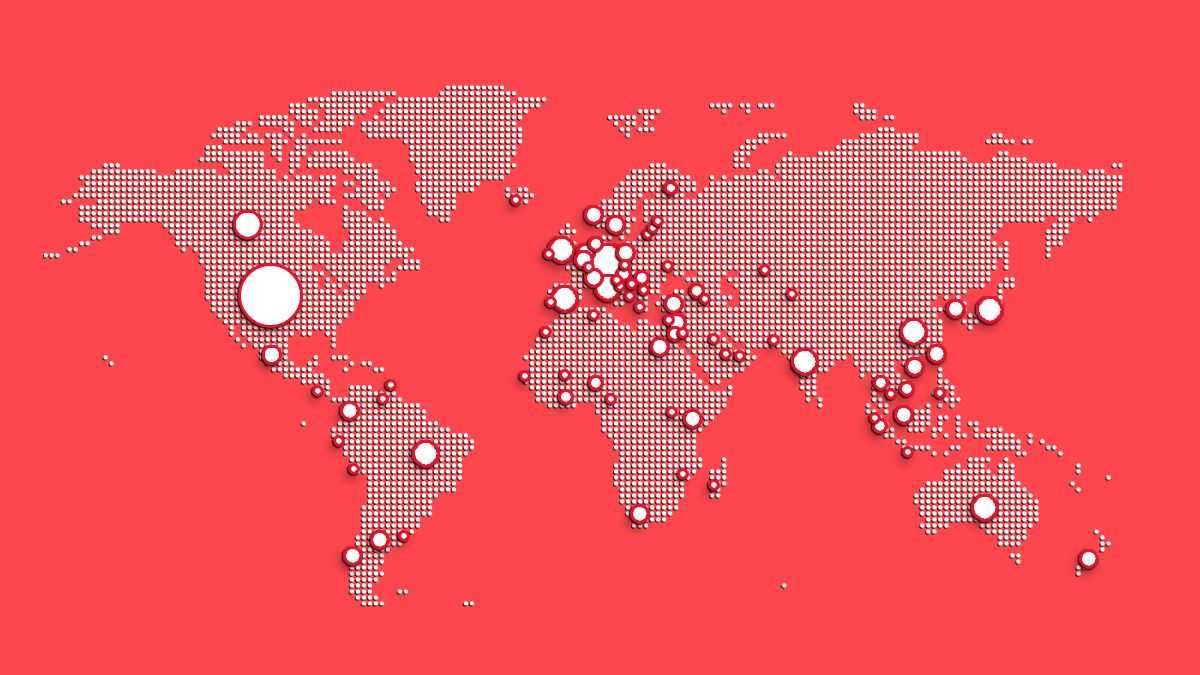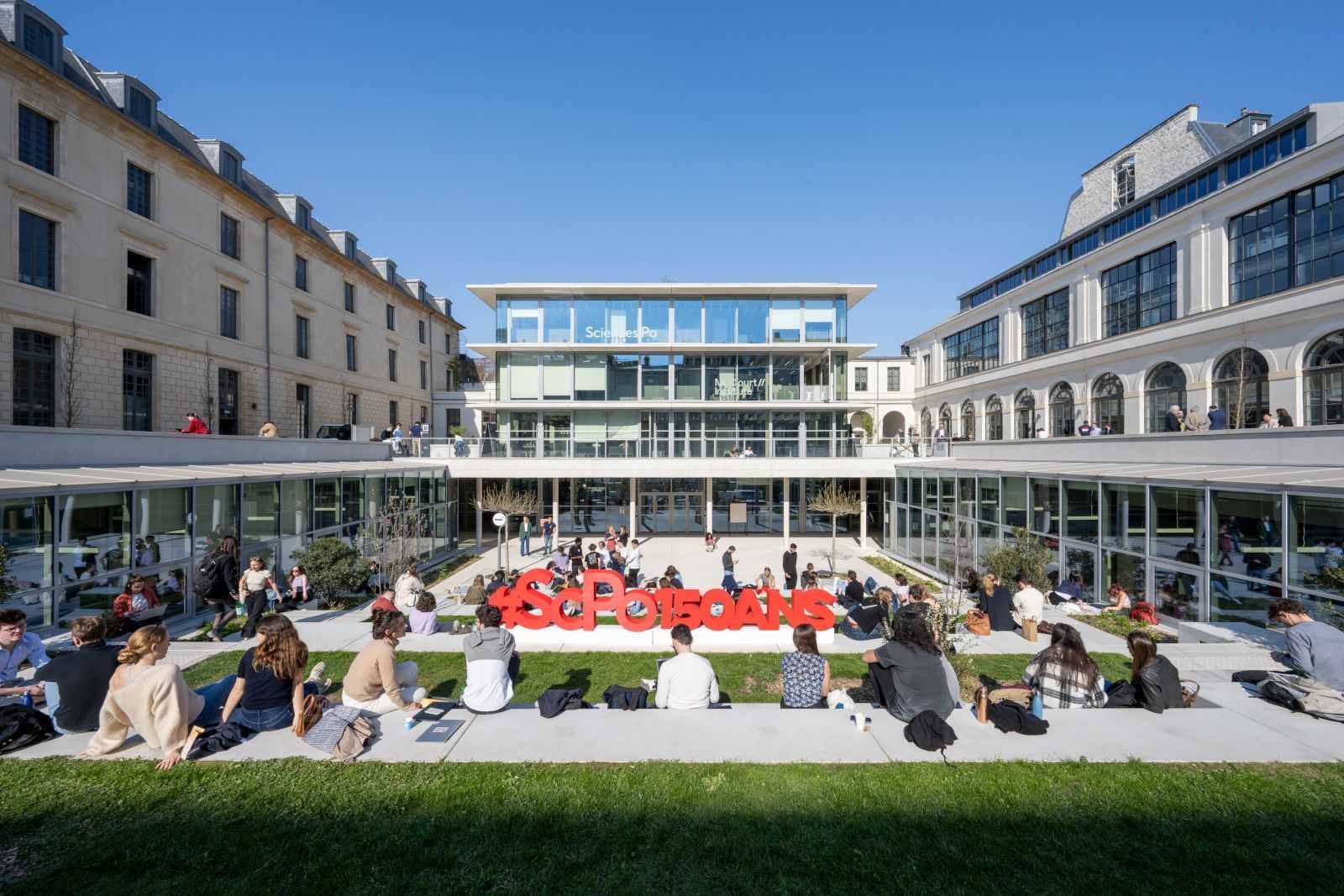
Home>International>Sciences Po and the world>Europe
Sciences Po and Europe
European values and the pan-European identity are central to Sciences Po’s institutional vision, while intra-European partnerships are deeply rooted in our institutional history. Sciences Po partners with 170 universities across the continent and welcomes more than 3,500 European students every year, equating to 25% of our student body. Europe is also the number one exchange destination for our students, drawing 48% of those studying abroad.
Sciences Po has also established dual degree partnerships with several strategic universities in Europe, notably in Germany, Italy, the United Kingdom, Sweden and Switzerland. These are complemented by research collaborations, visiting professorships and PhD exchange programmes between Sciences Po and its partners.
Since 2019, Sciences Po has coordinated CIVICA - The European University of the Social Sciences, an alliance of ten partner universities. CIVICA is both a pillar of our work in Europe and central to our overall strategy for outreach, development and educational innovation. It also plays a role in raising our profile and widening our reach internationally.
Sciences Po's Parners in Europe
Sciences Po has built a network of unparalleled diversity and prestige, with partner universities based in more than 29 European countries. These partnerships provide for 23 dual degree programmes with ten prestigious partners, as well as student exchanges and joint research programmes, such as OxPo with the University of Oxford and CamPo with the University of Cambridge.
Among our 170 partner universities in the region, Sciences Po has developed particularly strategic links with certain universities, including Bocconi University in Milan, LUISS in Rome, Freie Universität and the Hertie School in Berlin, King's College London, the London School of Economics and Political Science, University College London and the Stockholm School of Economics.
Dual degrees in Europe
Dual degrees are a linchpin of Sciences Po's international strategy, and the university has developed ten with partner universities in Europe.
Sciences Po offers dual Bachelor’s degrees with Freie Universität Berlin, University College London or LUISS, and dual Master’s degrees with Bocconi University Milan, the Hertie School, LSE or the Stockholm School of Economics.
Academic Programmes relating to Europe
Study of the European Union and issues surrounding European integration is central to Sciences Po programmes.
- Two campuses of the Undergraduate College are devoted to study of the European Union: the European Union, Franco-German Partnership minor on the Nancy Campus and the European Union, Central and Eastern Europe minor on the Dijon Campus.
- At the School of Public Affairs, the Master in European Affairs provides highly specialised training for students aspiring to work in Europe, whether in the public sector, the private sector, or EU and international organisations. Meanwhile, the Centre for European Civil Service Examinations (Fr) (CPCE) meets an ever-increasing demand for training from Sciences Po students and alumni preparing to sit the European Civil Service recruitment exams.
- At the School of International Affairs (PSIA), the European Studies regional concentration provides another opportunity for students to specialise in European issues.
- The Franco-German Exchange Programme for Trainee Parliamentary Assistants (PEAPS) (Fr) organises placements for French students in the Bundestag in Berlin. Students on the scheme gain an insight into European political issues and a first-hand experience of the German political and administrative system.
Research
The European Union and European integration are also central to research at Sciences Po:
- The Centre for European Studies and Comparative Politics (CEE) at Sciences Po is a multidisciplinary research unit devoted to comparative political analysis.
- The Alfred Grosser Chair was founded in 1993 with the aim of consolidating a tradition, first instituted by Professor Alfred Grosser, of exposing the Sciences Po community to a comparative and interdisciplinary perspective on Germany, Franco-German relations and Germany’s role in Europe and the world. The Chair fosters academic and scientific exchange between France and Germany, and facilitates the development of joint research projects.
- OxPo is a collaborative research programme in the humanities and social sciences co-run by the University of Oxford, Sciences Po, and the Maison Française d’Oxford (MFO). OxPo supports research collaboration and joint projects, funds joint events (seminars, conferences, workshops and presentations) and selects participants for five exchange programmes, which are open to researchers, PhD students and postdoctoral fellows at Sciences Po and in four departments at Oxford.
- CamPo is a strategic partnership between the University of Cambridge and Sciences Po. The flagship initiative works to consolidate international collaboration in the humanities and social sciences and to provide the platform for a long-term collaboration between the two universities, with the aim of becoming a world-leading hub for social science research. CamPo funds collaborative research projects and professorial and PhD exchanges.
Sciences Po is now recognised as one of France's foremost centres for social science research, and has been awarded 114 European Union research grants, including 26 from the European Research Council.
Strategic projects
Sciences Po plays a major role in the Erasmus+ scheme, which is foundational to our work to facilitate student mobility and support Sciences Po students studying abroad in Europe. Every year, more than 1,300 students leave or join Sciences Po on a long-term exchange with the Erasmus+ scheme. Since 2016, Sciences Po has also been involved in extra-European mobility, and is among the most active French universities in this part of the Erasmus+ scheme.
Sciences Po has been awarded the Erasmus+ “Good Practice” label (FR), which recognises institutions whose mobility programmes meet the highest standards in implementation, results and impact.
Since 2019, Sciences Po has coordinated CIVICA – The European University of the Social Sciences, a university alliance with a cumulative EU budget of approximately 20 million euros for the period 2019-2026.
CIVICA now brings together ten European higher education institutions in the social sciences, humanities, management and public policy, with a total of 72,000 students and PhD candidates, and 168 research centres. Its partner institutions are Bocconi University (Italy), Central European University (Austria), IE University (Spain), the European University Institute (Italy), the Hertie School (Germany), Școala Națională de Studii Politice și Administrative din București (Romania), the Stockholm School of Economics (Sweden), Szkoła Główna Handlowa w Warszawie (SGH, Poland) and the London School of Economics and Political Science (United Kingdom).
CIVICA is not only one of Sciences Po’s major Europe-wide initiatives, but also an integral part of our overall strategy for institutional development, transformation, educational innovation and international outreach.
Key figures
170
partner universities within Europe
10
dual degree partners
3500
European students at Sciences Po
nearly 50%
of all international students
650
Sciences Po students studying abroad
750
students on an internship in a European country every year
57%
of recent Sciences Po graduates employed abroad work in Europe


